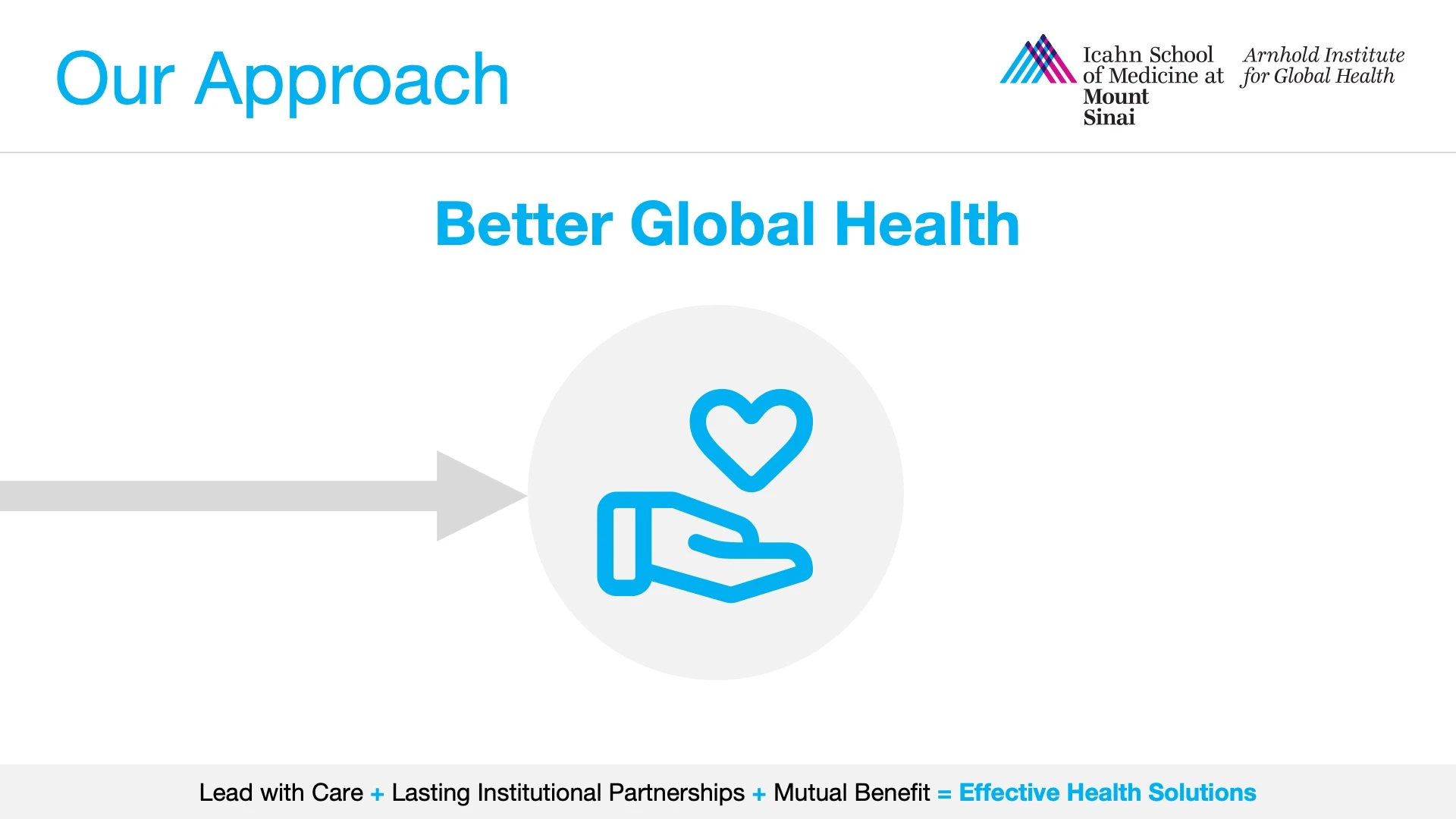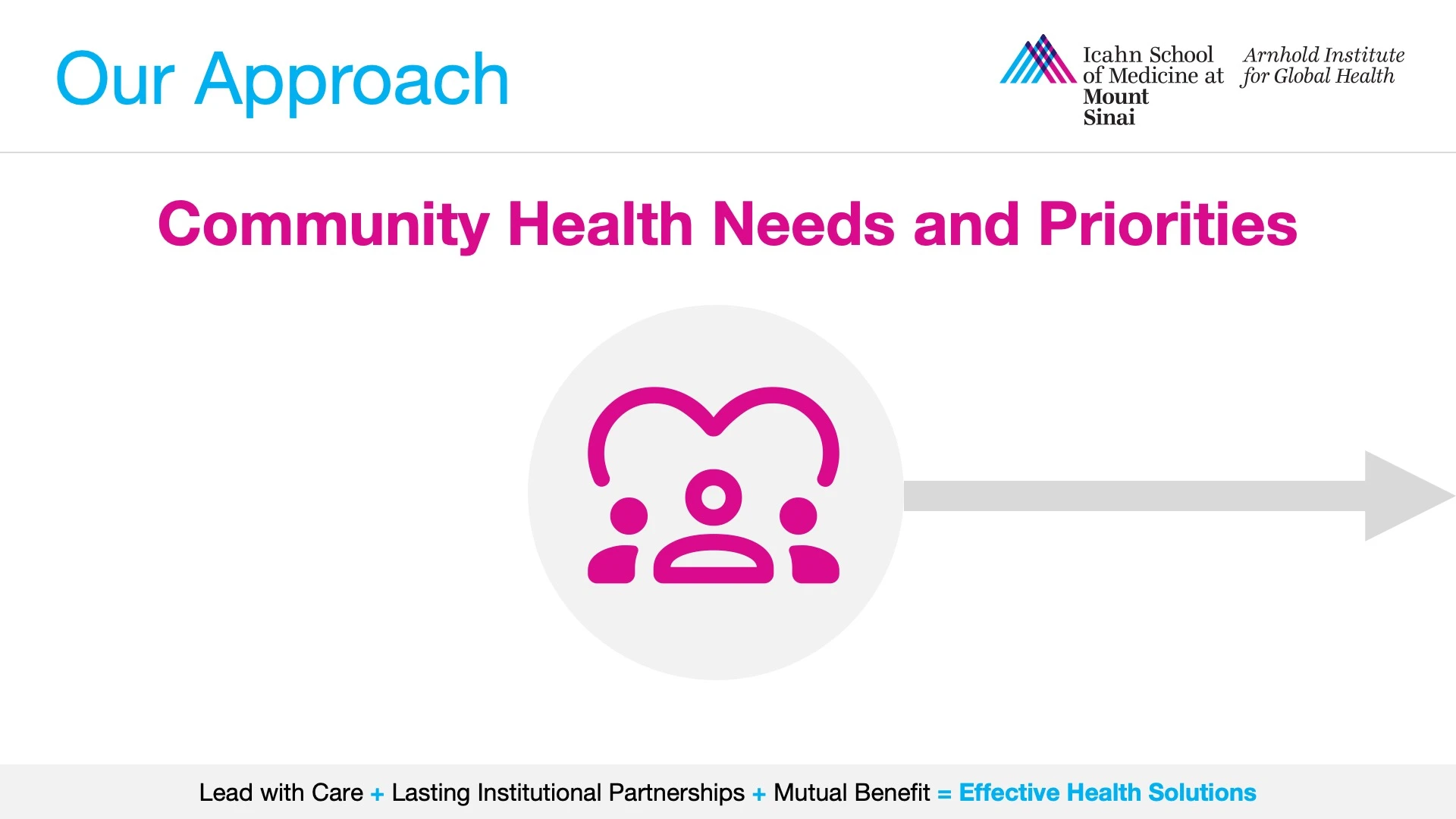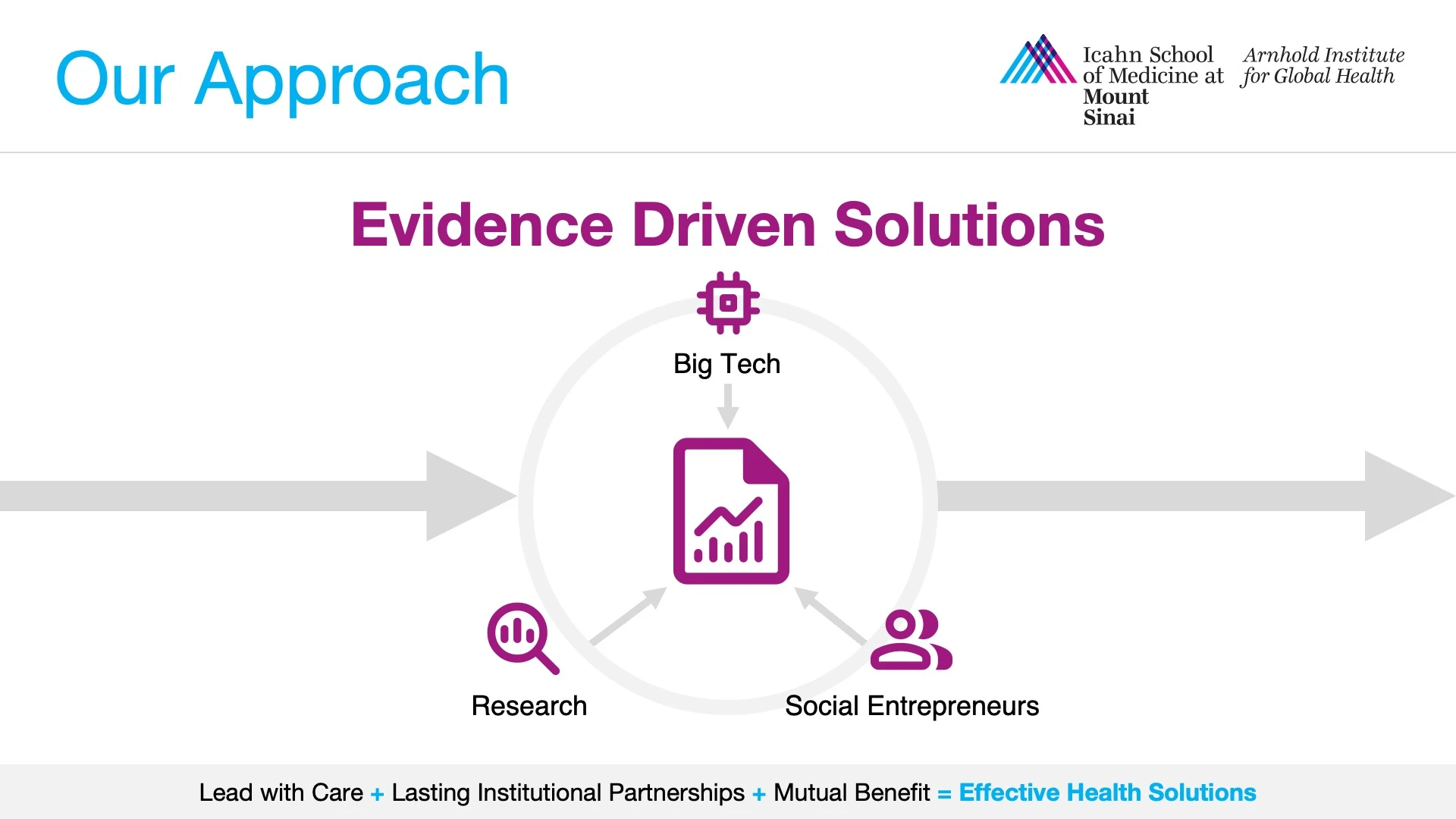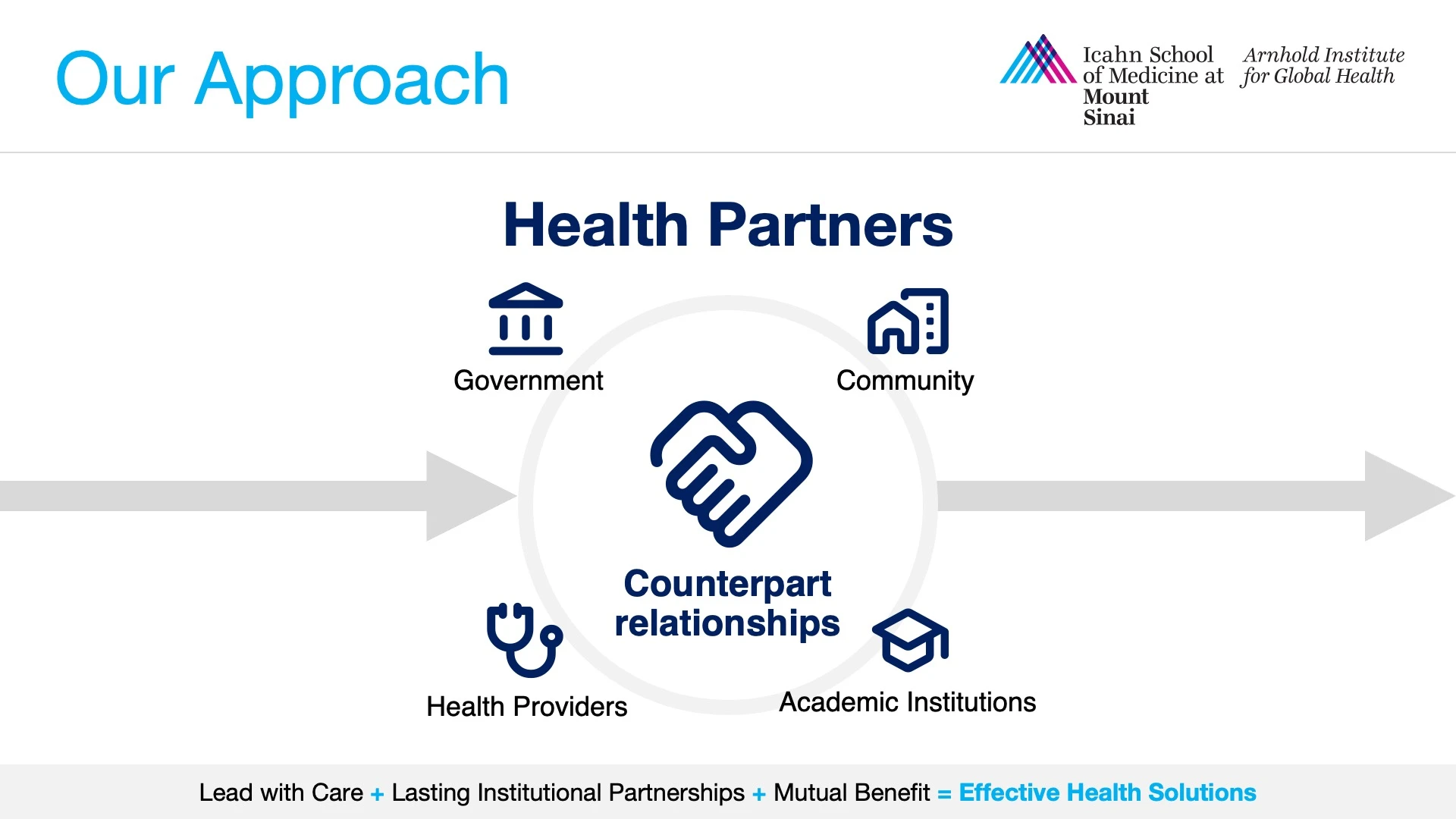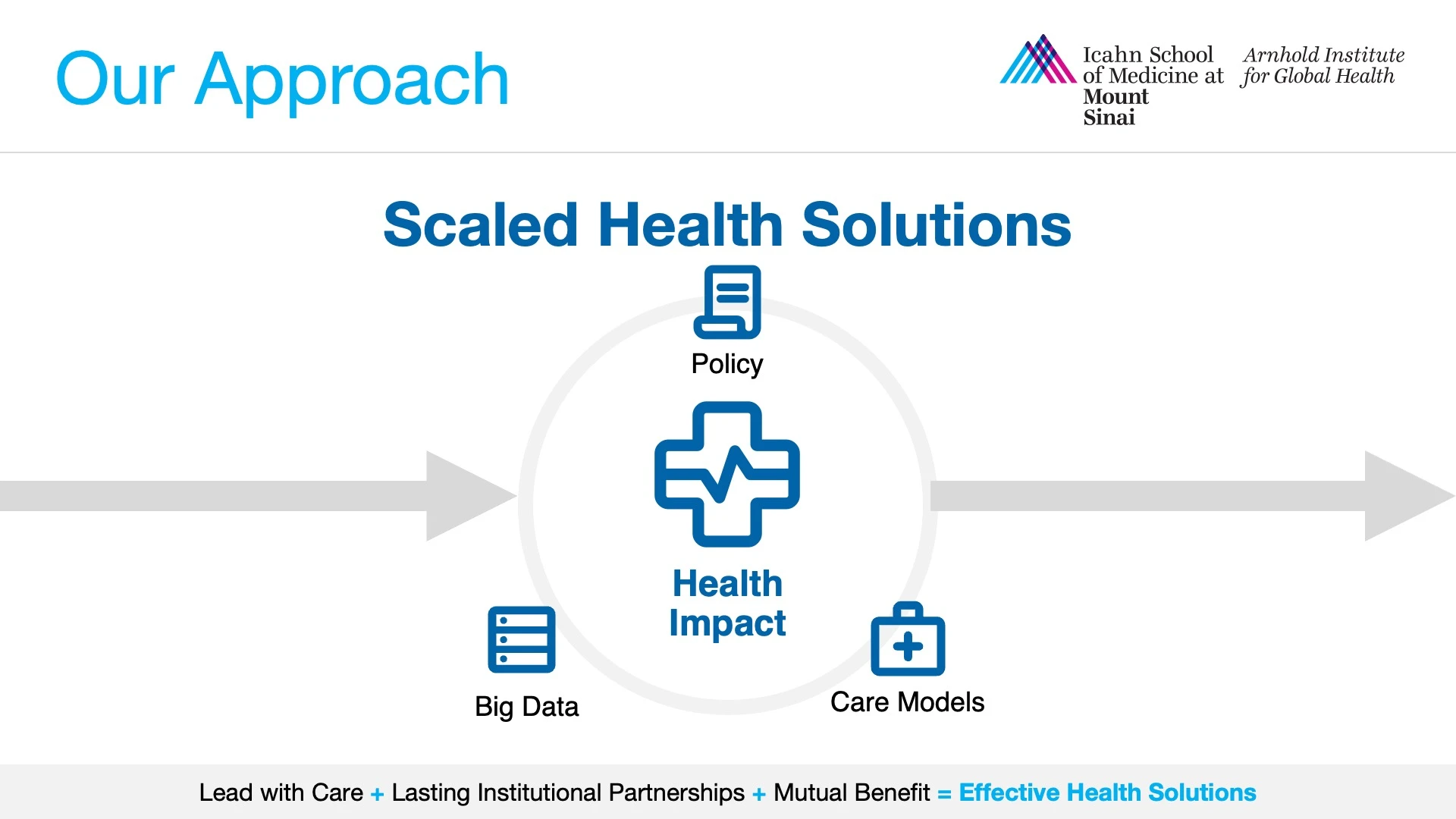At Mount Sinai, commitment to community extends far beyond New York City. From Kenya to Nepal to Grenada, two entities within the Health System are spearheading partnerships designed to improve local health care delivery: the Arnhold Institute for Global Health at the Icahn School of Medicine at Mount Sinai and Mount Sinai International.
Consider just one example of this collaborative spirit at work.
In a small South American country nestled between Venezuela and Brazil, the health care landscape is transforming—rapidly and dramatically. With Mount Sinai’s guidance and assistance, Guyana’s national government is building a robust, modern-day system from the ground up.
A state-of-the-art pathology laboratory has dramatically reduced the turnaround time for potentially lifesaving diagnoses to days. More than 73,000 school-age children have been screened for health problems as part of a sweeping program designed to benefit every citizen with high-quality primary and preventive care services. Nearly 800 nursing assistants have been trained to help fill a severe shortage of health care workers needed across thousands of miles of often rugged and barely reachable terrain.
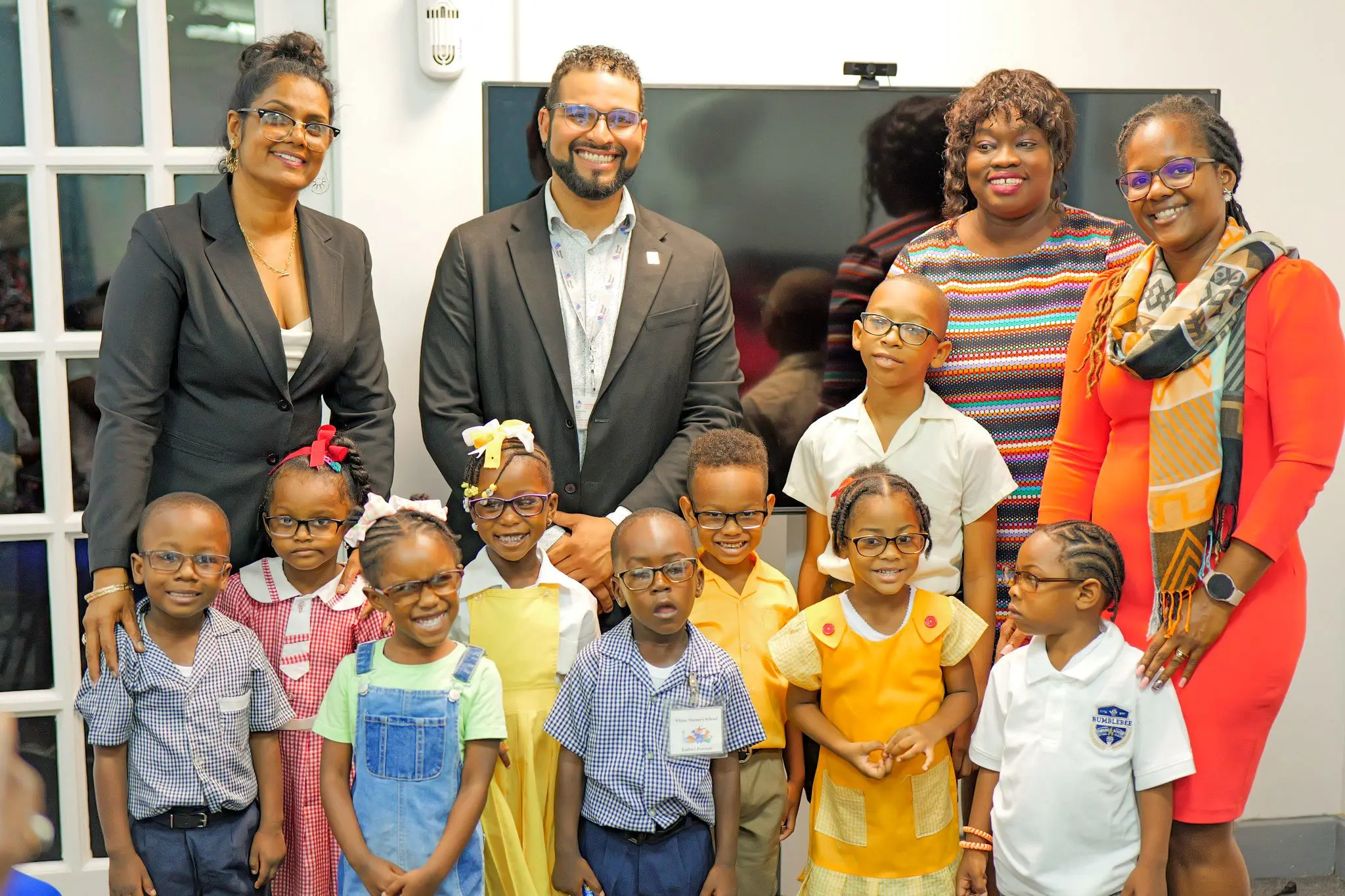
Some of the most telling changes that Mount Sinai is helping to bring in Guyana aren’t measured in numbers. Rather, they’re expressed in subtle ways, such as the disbelief on the faces of young students when handed their first pair of eyeglasses, and in the gratitude in the faces of their parents who realize that a simple eye exam and corrective glasses can give their kids a whole new perspective on the world around them.
But as people managing the Guyana National Healthcare Initiative have learned from experience, some of the most telling changes aren’t measured in numbers. Rather, they’re expressed in subtle ways, such as the disbelief on the faces of young students when handed their first pair of eyeglasses.
For the first time, they can see books, blackboards, and fellow students clearly. Deep gratitude is also written on the faces of their parents who realize that a simple eye exam and corrective glasses can give their kids a whole new perspective on the world around them—compliments of their government’s plan to make quality health care accessible to all citizens, especially the most vulnerable.
This wide-ranging public health initiative was launched in 2022 when Mount Sinai Trustee John Hess, Chief Executive Officer of Hess Corporation, approached Mount Sinai about partnering with Guyana’s Ministries of Health and Education. The project—funded jointly by the government of Guyana and by Hess, which has significant operations in Guyana—was recently extended for five more years.
This extension testifies to the partnership’s accomplishments thus far and the great potential yet unfolding. Examples include the creation of a first-in-class cancer treatment center along with the most advanced digital health system in that part of the world, as well as countrywide screening of adults for diabetes, cardiovascular disease, and cervical and prostate cancer.
“This partnership is about strengthening a health care system for a country that puts people first,” says Rachel Vreeman, MD, MS, Mount Sinai's Executive Director for the Guyana National Healthcare Initiative, Chair of the Department of Global Health and Health System Design at the Icahn School of Medicine, and Director of the Arnhold Institute. “Mount Sinai is known and trusted internationally for its unyielding commitment to outstanding patient care and outcomes, and it’s a privilege to have been asked by the Government of Guyana to build this unique vision of a health care system alongside them.”
The tight working relationship that has developed is epitomized by Guyana’s new Pathology Services Laboratory. Located in the country’s capital at the Georgetown Public Hospital Corporation, the lab is the nation’s largest and is as advanced as any in the world. The facility—digitally connected to its Mount Sinai counterpart in New York City—has reduced turnaround time for vital results to 72 hours.
“The lab has all the components of what we’re able to accomplish as partners,” says Szabi Dorotovics, MD, MBA, President of Mount Sinai International, an arm of Mount Sinai Health System that provides health care consulting services globally and is helping lead a number of key enterprises within the Guyana National Healthcare Initiative. Mount Sinai worked with the Guyanese government to build the laboratory and to train the pathologists, assistants, and technicians on staff. “We put in place a sophisticated digital infrastructure that has allowed Guyana to go from limited diagnoses available,” Dr. Dorotovics says, “to the best in the world—by remotely linking to Mount Sinai’s expertise back in New York.”
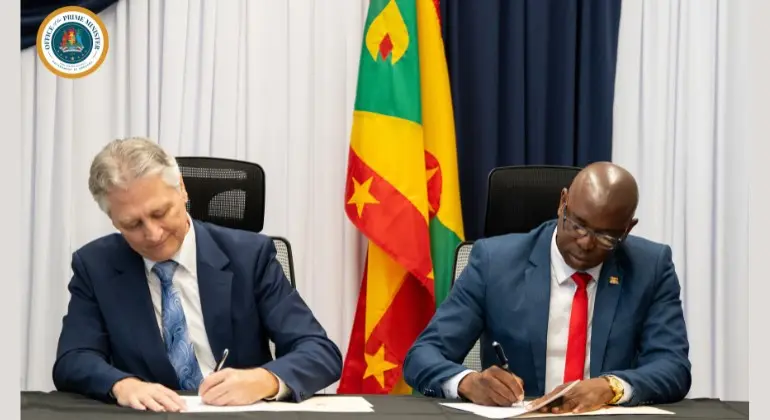
Government of Grenada Signs Agreement with Mount Sinai Health System for the Development of a New, State-of-the-Art, Affiliate Hospital for the People of Grenada, Carriacou and Petite Martinique
The Government of Grenada has signed a long-term collaboration agreement with Mount Sinai, a globally recognized academic medical center, marking the next phase in the transformation of Grenada’s health care system. Click here to read more
The team has been no less rigorous in its efforts to reach every child and youth through health care screening and prevention activities. “We started in 2023 with children ages 3 to 5, and within four months had screened 60 percent of that population—a remarkable participation rate for this type of setting,” says Josué Alcántara, MPH, who has served as Mount Sinai’s Country Director in Guyana.
“In 2024 we launched primary school screenings for grades one through six, and this year we’re expanding to the secondary school, or teenage, years.” Outreach of this scope is not always an easy task: To reach children in the country’s hinterlands, the program must often muster multidisciplinary teams of specialists to trek by boat, helicopter, or small plane to remote villages.
CEO Brendan G. Carr, MD, MA, MS, left, and Biraj Man Karmacharya, MBBS, PhD, MPH, Administrative Director at Dhulikhel Hospital, appeared on a panel discussion at the Concordia Annual Summit to discuss Mount Sinai’s partnership in Nepal. They were joined by Rachel Vreeman, MD, MS, Director, Arnhold Institute for Global Health.
“We’re working to ensure that every child and adult in every region of the country has access to preventive and primary care services that simply didn’t exist in the past,” Dr. Vreeman says.
As part of that endeavor, the program is modernizing health centers across Guyana. Health care workers are being trained, and regions are being identified where their numbers are sparse. Referral pathways are being mapped out to connect children who have more serious physical, behavioral, and developmental issues with specialists equipped to address them. Moreover, six additional regional hospitals recently opened with high standards of operational performance and quality, with plans for additional specialty and regional hospitals underway.
Adults are benefitting from primary and preventive care outreach similar to that extended to children. The Guyana Ministry of Health just launched, for example, a program to provide vouchers covering the cost of screening at local labs for diabetes, elevated levels of cholesterol, prostate and cervical cancer, and other health issues.
Country Director Alcántara—who will next join the Arnhold Institute’s partnership program in Nepal—also reports that for the first time, health centers in Guyana are being equipped with the latest equipment to measure hemoglobin A1c as part of a concerted campaign to identify and treat diabetes, a big concern in Guyana. Just as important, project leaders are formulating national guidelines around diabetes, cardiovascular screening, and clinical care, and health professionals are traveling across the country to train community providers.
Given the breadth and depth of the transformations taking shape across Guyana, it’s not surprising that other countries with underserved populations are taking a close look at the program’s success.
“We’ve created a unique model built on strong public support, private funding, and input from an academic partner committed to bringing to it the very best science, innovation, and health care expertise,” says Dr. Vreeman, whose frequent trips to Guyana are an integral part of her schedule. “Our team is showing that it’s really possible to shift the trajectory of an entire health system, and we firmly believe this model can, and should, be replicated anywhere in the world.”
—By Randy Young

